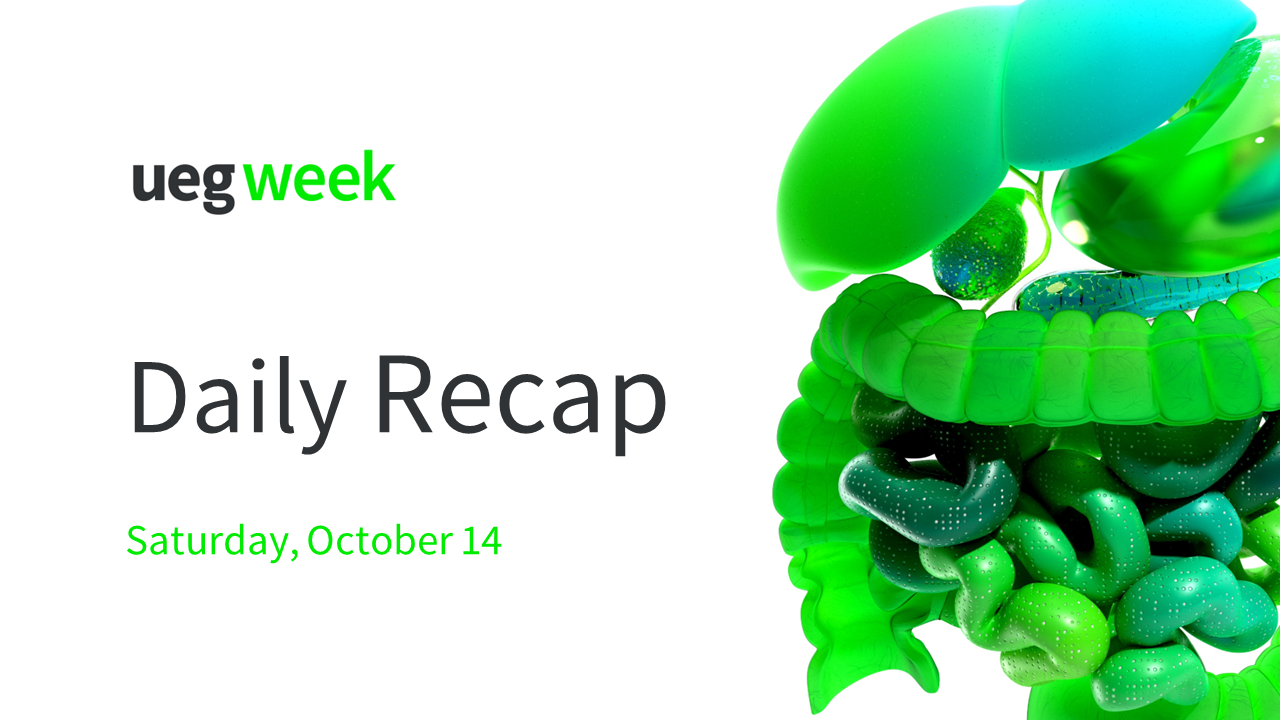
Welcome to UEG Week 2023!
We are thrilled to extend a warm welcome to all our attendees, whether joining us in Copenhagen or virtually, as we bring an exciting first day of UEG Week 2023 to a close.
Over the next few days, keep an eye out for our daily recaps, where we’ll spotlight the very best moments of the congress. From the pivotal scientific breakthroughs and research findings to the array of additional valuable opportunities that await you, our recaps are designed to keep you informed, engaged and inspired throughout the course of the event.
Thank you for joining us on this journey. We look forward to another three days of meeting, exchanging and evolving together.
Opening of the Postgraduate Teaching programme
UEG Week 2023 commenced with the launch of this year’s Postgraduate Teaching (PGT) programme. This dynamic two-day educational experience provides practical insights relevant to the clinical day-to-day business, offering comprehensive updates on the latest developments in gastrointestinal and hepatology topics.
The PGT programme follows a structured 3-year curriculum, based on the recommendations outlined in the ESBGH Curriculum – The Blue Book. 2023 marks the third year of the curriculum, which includes dedicated sessions and learning objectives for a wide range of topics including: Colorectal, Endoscopy and imaging, IBD, Liver, Oesophagus, Nutrition, Pancreas and biliary tract, Small bowel, Stomach and Therapy updates.
The opening session of the PGT programme, titled “How does quality in endoscopy affect the prognosis of our patients?” was introduced by Julia Mayerle, Chair of the Scientific Committee.
“Welcome everybody to our UEG postgraduate course,” Julia Mayerle said. “We are back in Copenhagen after 18 years. I would really like to extend a very warm welcome to our 4,560 participants. That’s a real record.”
Julia Mayerle continued by providing attendees with a glimpse of what they could expect over the following two days. She shared, “We are glad that the surgical societies have agreed to have a new concept in the Surgical Learning Area. We have revamped our concept in the sense that is now open and designed for all medical professionals – not only for surgeons. We want to learn from each other. We want to learn from the surgeons and with the surgeons.”
In addition, she also provided an overview of next year’s programme, which will focus on inter-disciplinary, multi-professional training for emergencies in endoscopy.
She concluded, “I’d like to extend my gratitude and thanks to the PGT taskforce and I hope you will have a perfect experience here in Copenhagen.”
Following Julia Mayerle’s welcome, the session proceeded with a series of presentations that explored key performance indicators for gastrointestinal endoscopy, quality in endoscopy and polypectomy and endoscopic surveillance. The session finished with a lively panel discussion that shed light on the impact of quality in endoscopy on the prognosis of patients.
Stay tuned for more engaging sessions tomorrow on IBD, cirrhosis and liver cancer and dysphagia, amongst others, as part of the PGT programme.
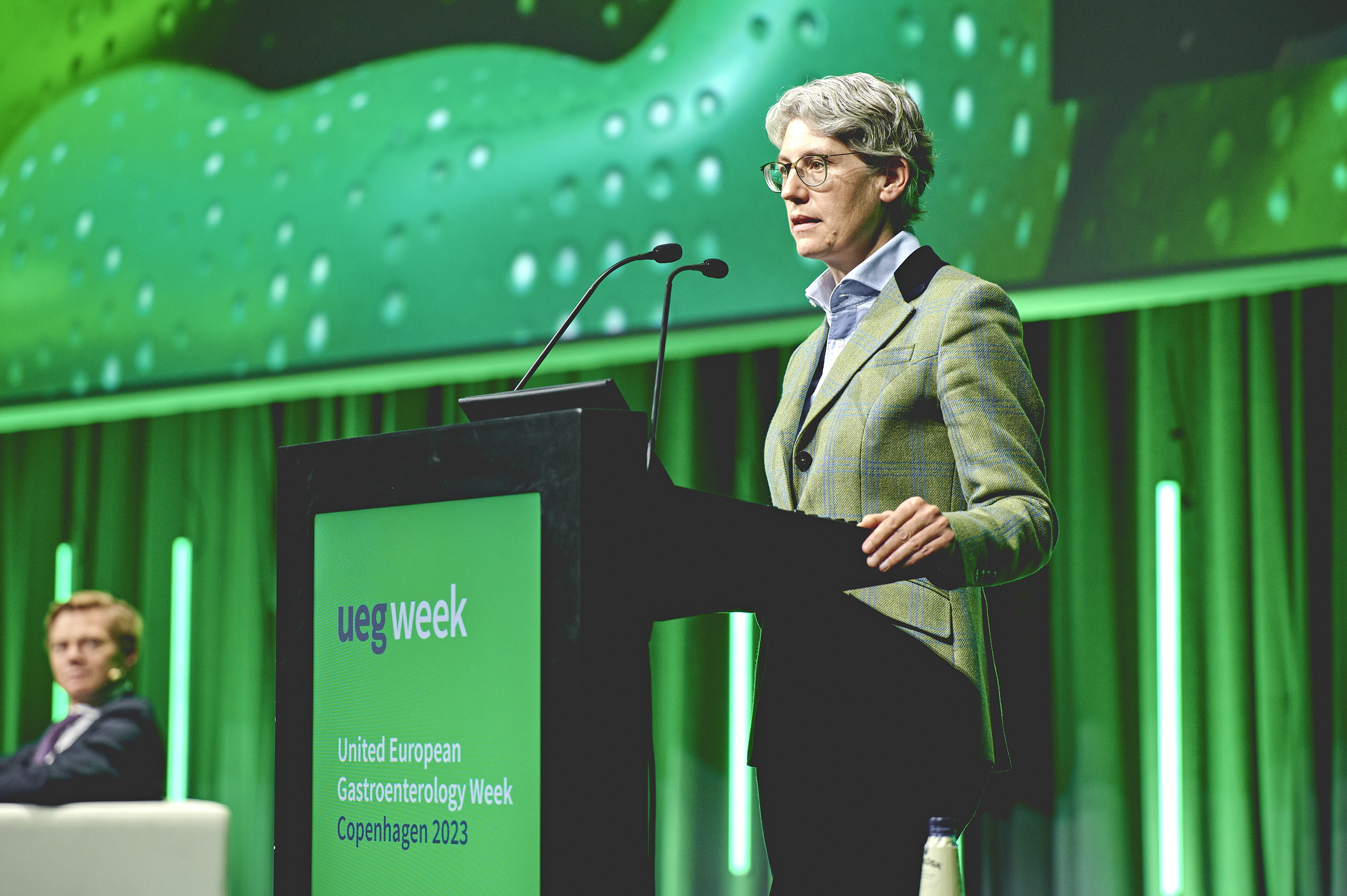
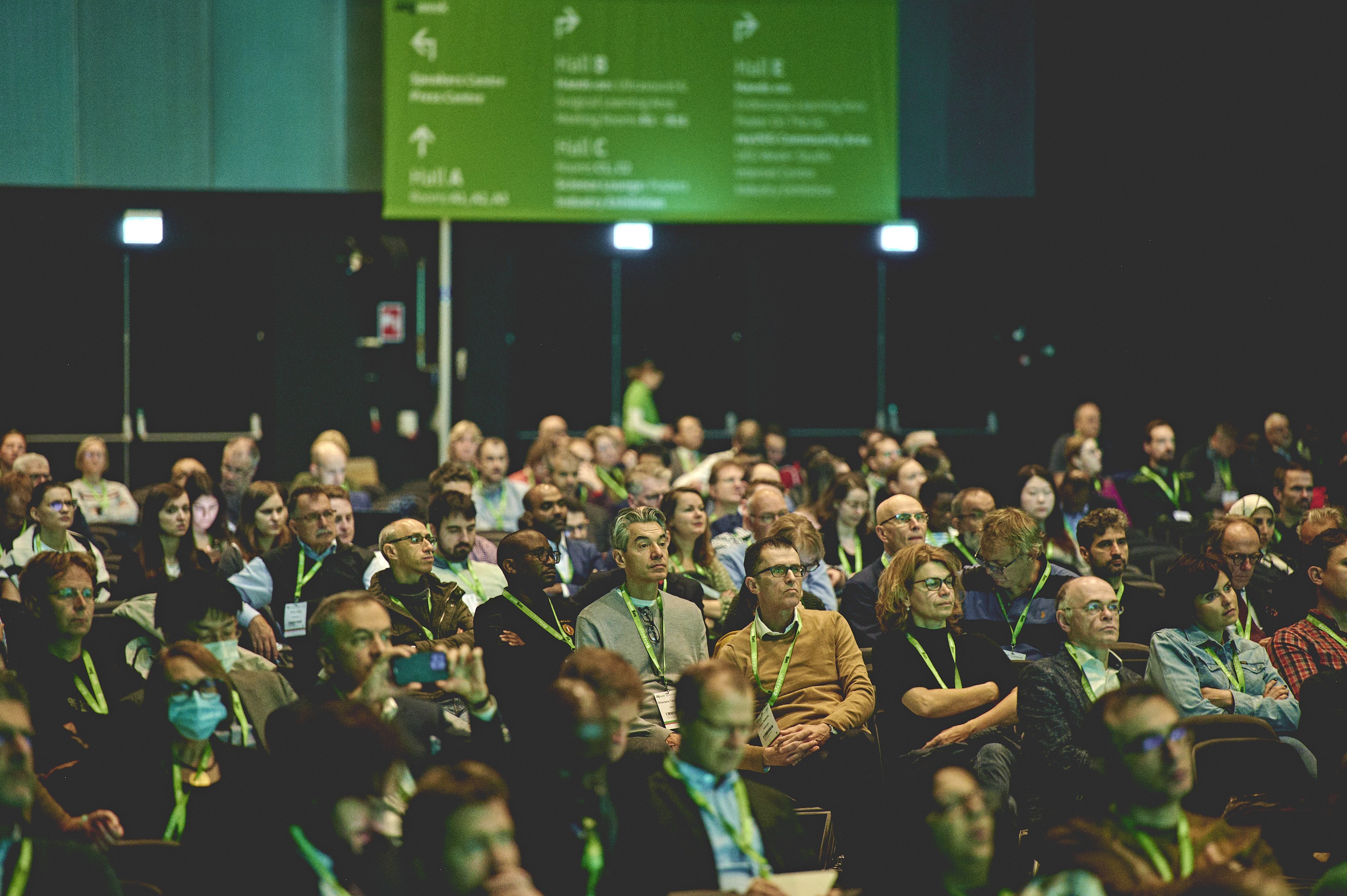
Late breakers to watch out for!
Throughout the week, look out for our late breaking sessions, where we will reveal the latest, high-impact research set to reshape the future of the field.
Mark your calendars and be sure to join us at the following sessions:
- Sunday, October 15, 17:00 – 18:00 CEST for “Breakthroughs in IBD treatment and outcomes”
Discover the latest innovations in inflammatory bowel disease and their far-reaching implications.
- Monday, October 16, 10:00 – 11:00 CEST for “Breakthroughs in screening and management of colorectal lesions”
Explore cutting-edge strategies that could revolutionise our approach to colorectal lesion screening and care.
- Tuesday, October 17, 08:30 – 09:30 CEST for “Advances in endoscopy”
Witness the future of endoscopy techniques and their transformative impact on patient care.
- Tuesday, October 17, 14:30 – 15:30 CEST for “AI and machine learning in gastroenterology”
Gain valuable insights into how artificial intelligence and machine learning are advancing our knowledge and approach within the field.
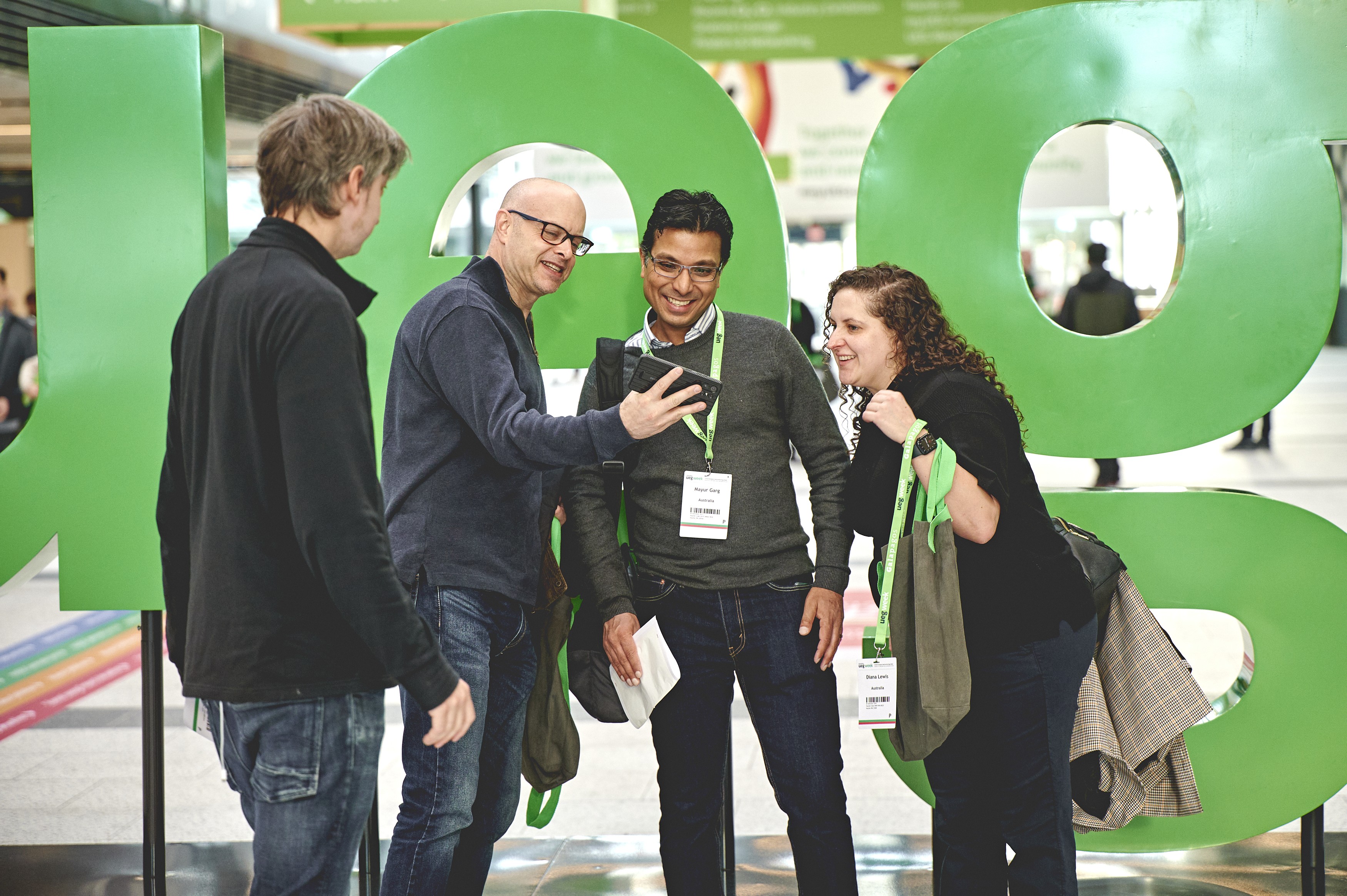
UEG Week Hands-on
Today marked the opening of the Hands-on Area at UEG Week, located in Hall B and E of the conference centre. This space is dedicated to providing excellent training for practical minded gastroenterologists that will enhance their knowledge, help them stay at the cutting-edge of the latest advancements and offer an opportunity to practice in-demand techniques.
The Endoscopy Learning area, runs in cooperation with ESGE and ESGENA, offers a unique chance to update your skills, engage in a first-class educational experience and foster professional discourse. Here, you can put your skills to the test under the guidance of expert doctor and nurse tutors, utilising state-of-the-art accessories from leading providers.
In addition, the Ultrasound Learning Area, runs in cooperation with EFSUMB and BICUS, promotes the pivotal role of a major diagnostic and interventional tool in gastroenterology: Clinical ultrasonography in the hands of gastroenterologists. The area provides a comprehensive array of basic and postgraduate courses in ultrasonography, individual hands-on training and special lectures in abdominal ultrasonography. The programme caters for both young and senior gastroenterologists, with or without experience in ultrasonography.
The Surgical Learning Area, conducted in collaboration with ESSAT, EAES, EDS, EFISDS and ESCP, is an interactive learning area with surgeons that offers two different courses for all physicians. Register for the “Endoanal Ultrasound Course” created for physicians involved or interested in pelvic floor disorders, and explore the workshop, “What gastroenterologists needs to tell surgeons. A helpful insight in surgical reason” developed for all gastroenterologists who are closely collaborating with surgeons.
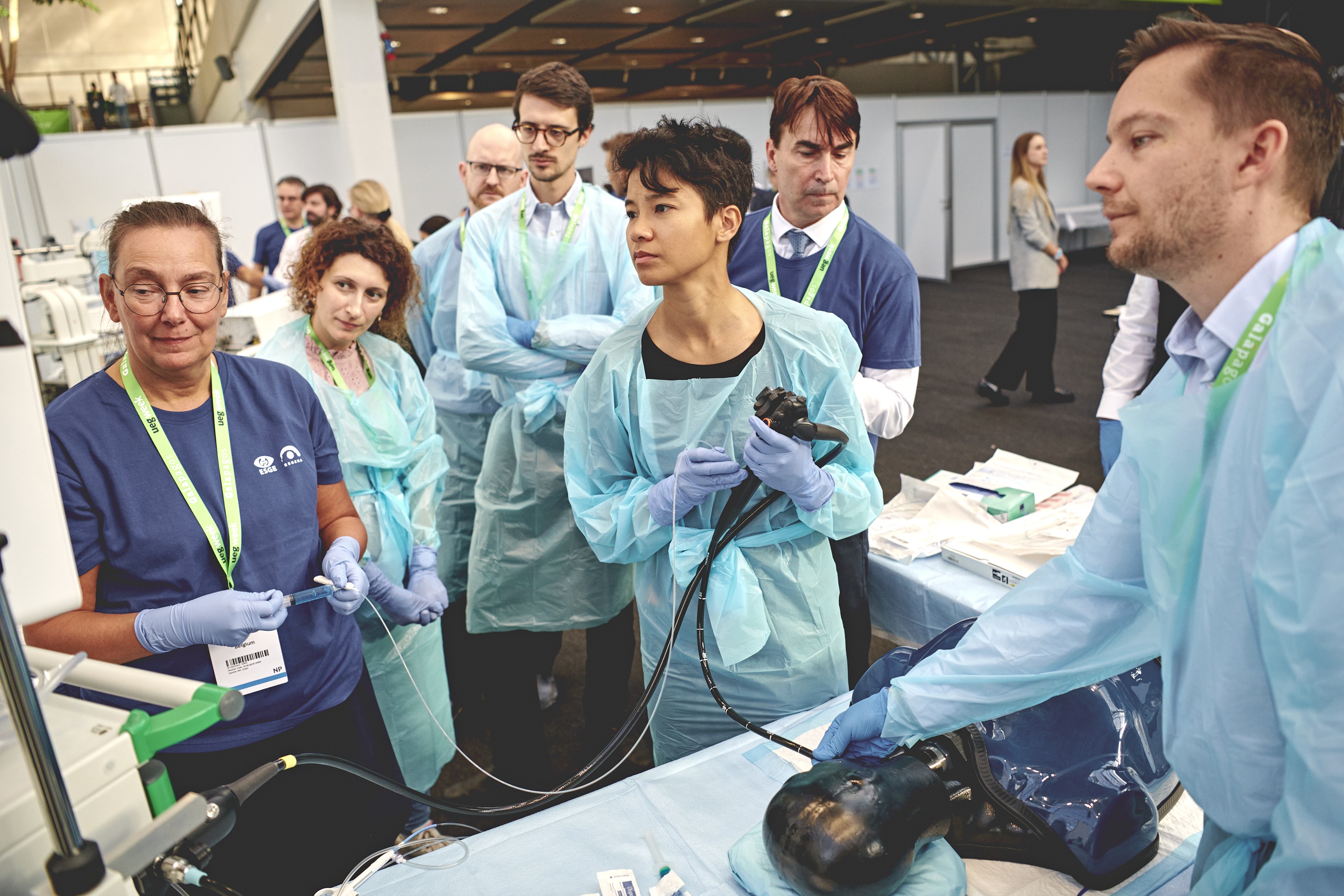
Discover UEG Week+
Elevate your knowledge in a new way with UEG Week+. These exclusive recorded-only sessions break away from the traditional presentation format at UEG Week, prioritising discourse and debate.
Simply press “play” and witness leading experts unravel the intricacies of the current challenges seen in the field of gastroenterology. Unlock access to in-depth discussions and diverse perspectives that go beyond the surface, providing a deeper understanding of the subject matter. The session recordings will be available in the “missed-a-session” section on the virtual platform with just 5 hours of recording.
This year's hot topics include:
- “Hospital in Crisis”
Delve into a comprehensive discussion with international experts on the challenges faced by healthcare systems globally, a particularly pertinent topic in today’s world.
- “Clinical Trials in IBD: Endpoint Missed?”
Watch top experts discuss the nuances of missed endpoints in clinical studies related to inflammatory bowel disease (IBD) and the significant implications of both false negatives and false positives.
- “UEG Research Prize 2023: The European Alliance for Gastrointestinal Lesions in Early Stages (EAGLE)”
Tune in to get further insights into this year’s UEG Research Prize-winning project led by Michael Bretthauer.
That's all for today's recap! Tune in tomorrow for more bitesized highlights from the scientific and wider congress programme.

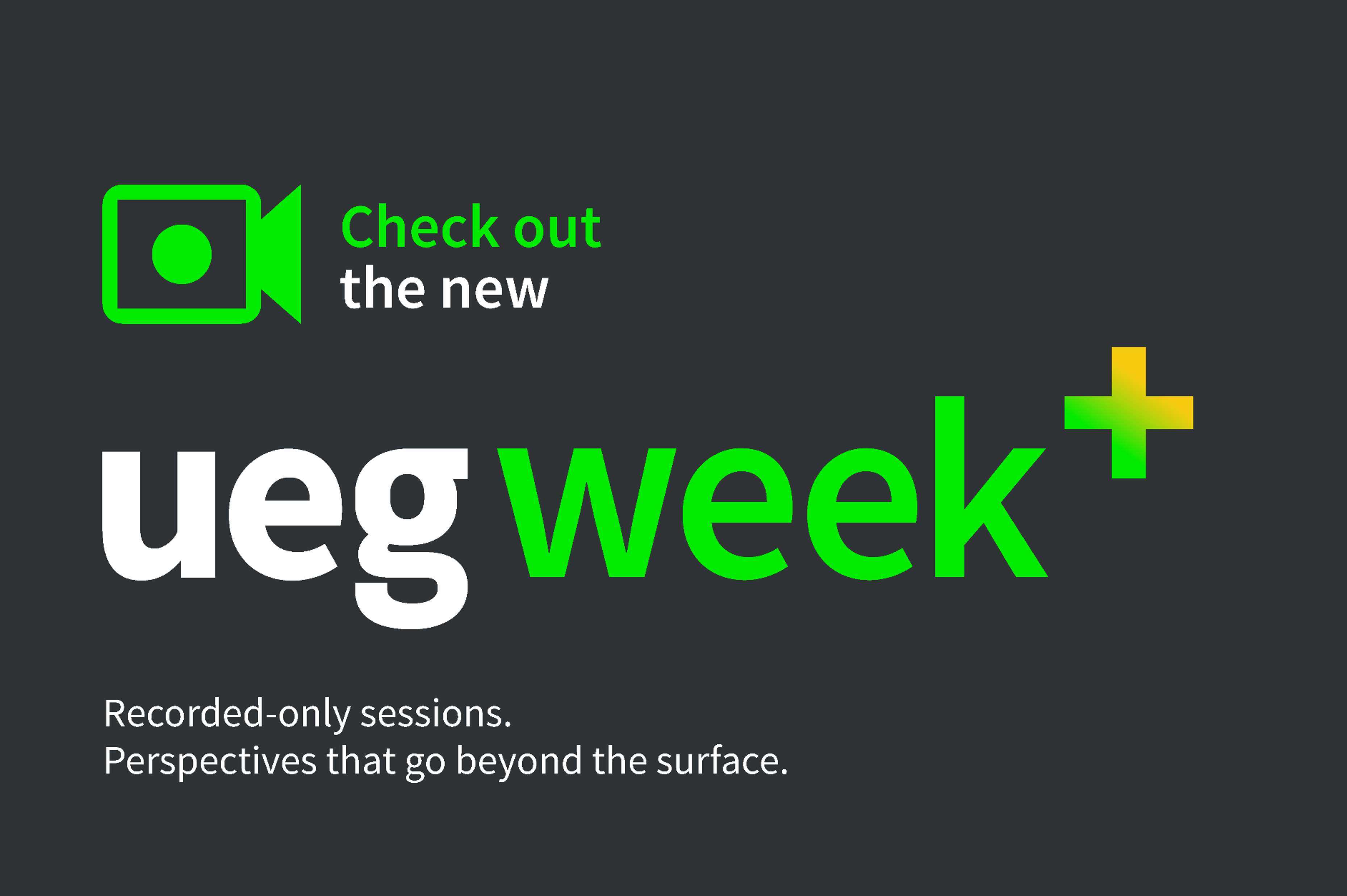


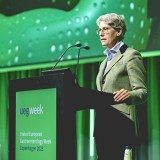
Please log in with your myUEG account to post comments.